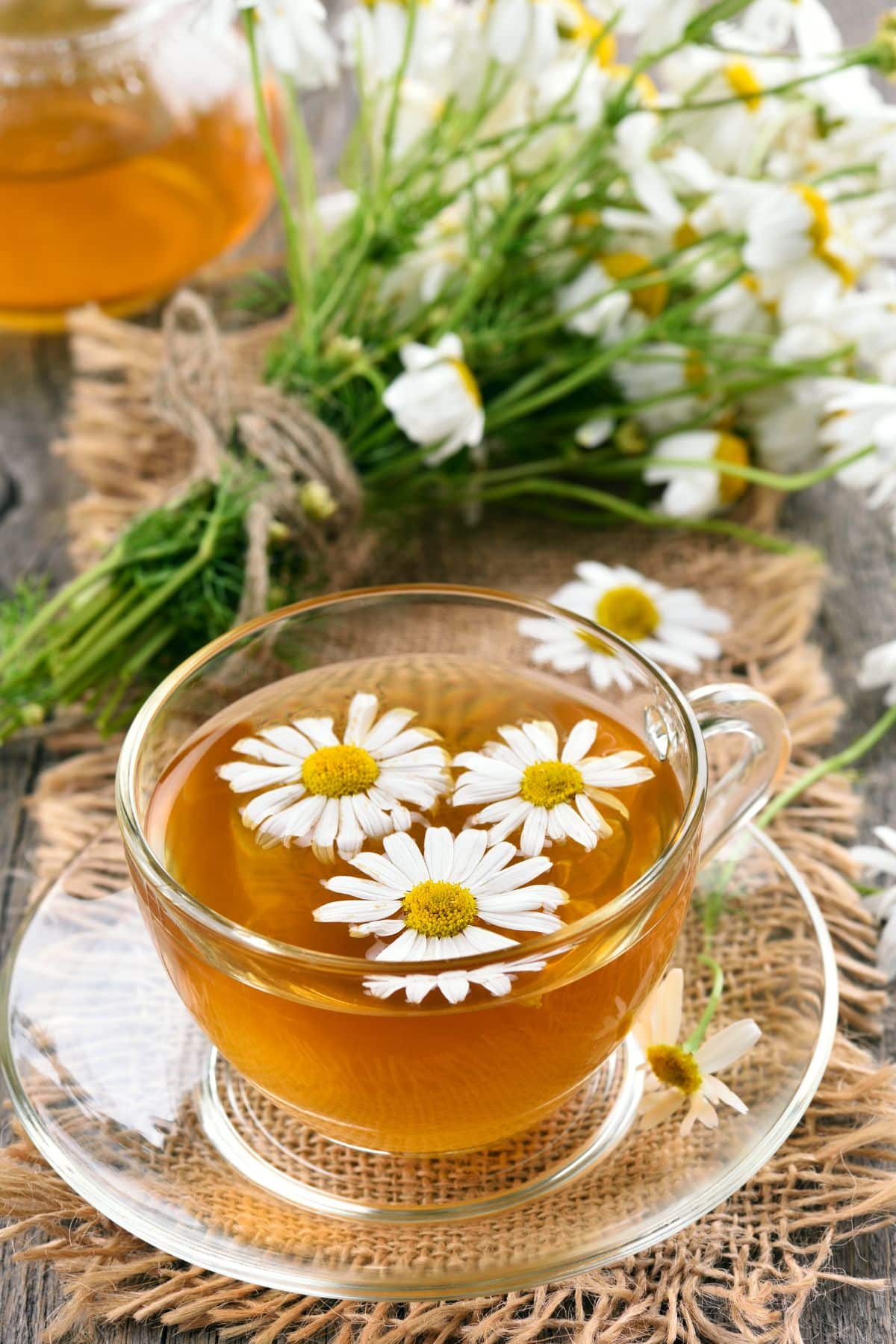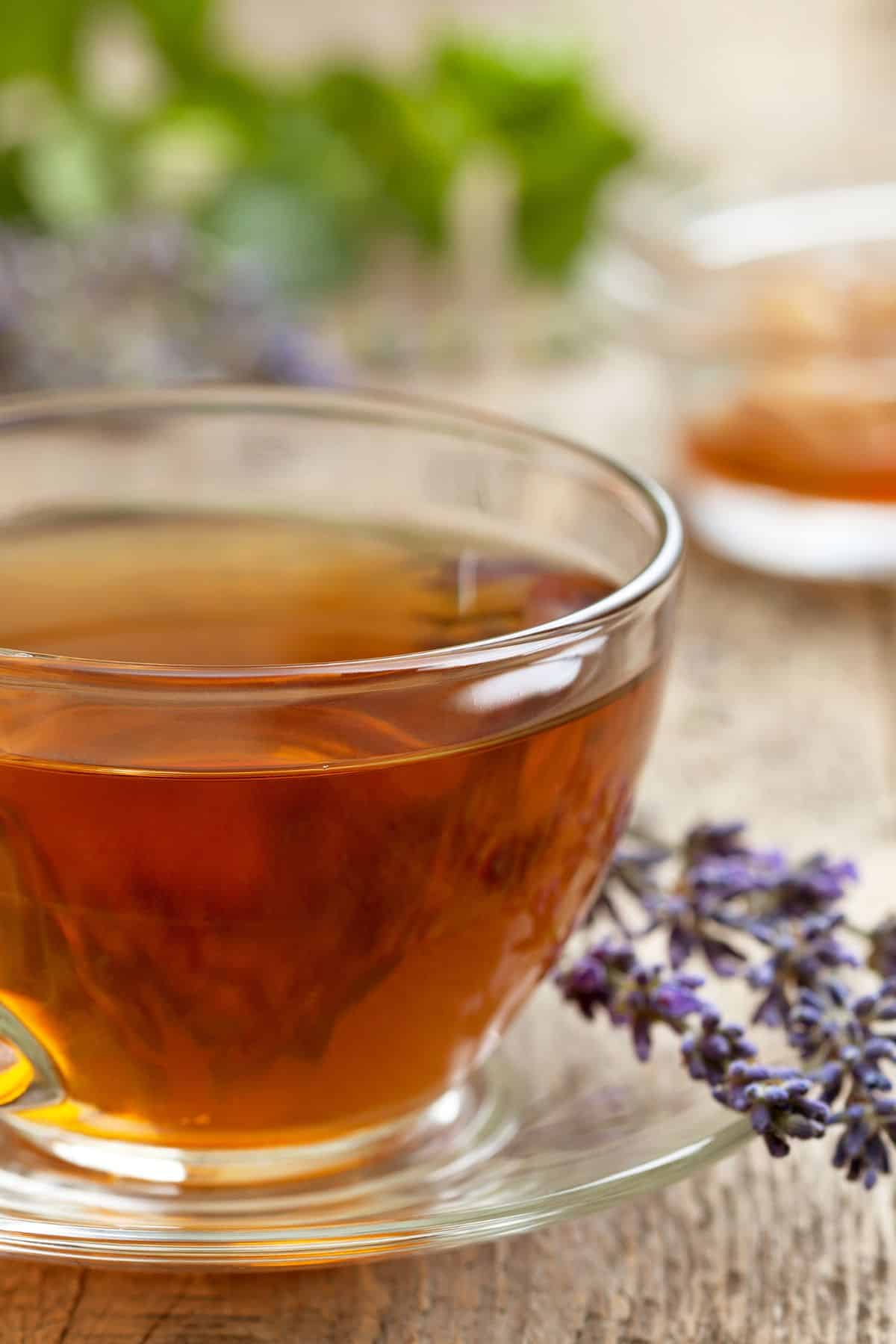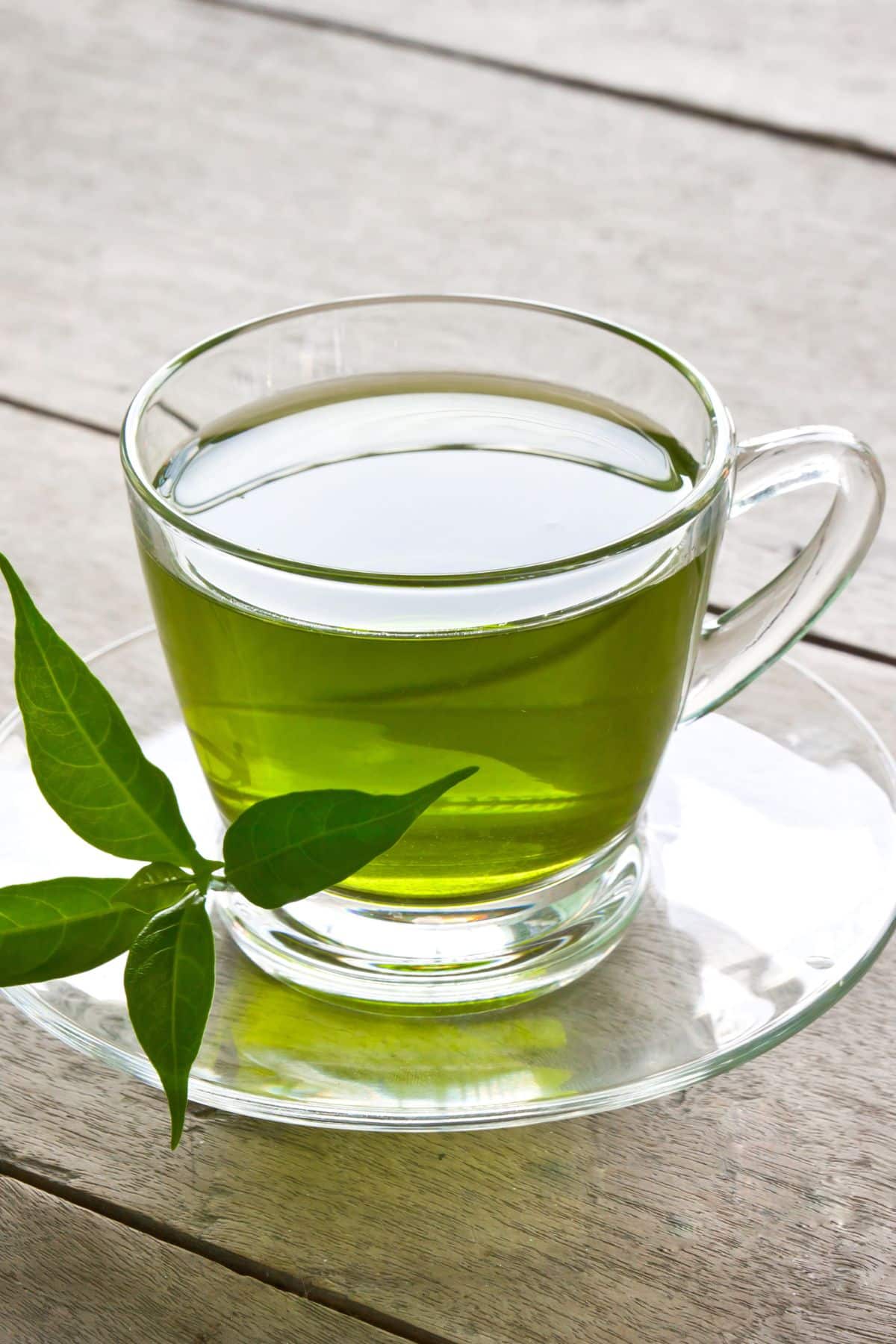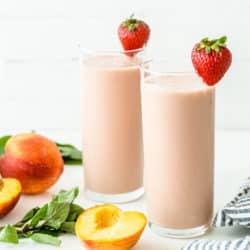7 Teas for Headaches (Herbal & Caffeinated)
In this blog post, I’ll review which teas are good for headaches? Find out some teas to help get rid of a headache fast! I’ll also share experience with migraine headaches and which type of tea I find helps the most.

Everyone experiences a headache at some point in their lives.
There are several types of headaches, each with unique symptoms, causes, and treatment options.
Teas for Headaches
Here are the top tea types you can try for fast headache relief. Most of them are herbal teas that have research showing their ability to help prevent migraines through different actions.
Be sure to speak with your healthcare provider about your headaches, especially if your headache feels extreme (like the worst one you’ve ever had) or it’s accompanied by other symptoms such as fainting or other severe symptoms. You may need to seek immediate help.
And, remember that there is not one best tea for migraine attacks. It all depends on your individual situation.
1. Ginger tea

You only need a few slices of fresh ginger root and hot water to make ginger tea. It has a fiery, slightly spicy taste that can warm you up in winter.
Ginger has anti-inflammatory properties that can help relieve pain. It also calms the body, which can help alleviate tension headaches.
According to research, this powerful root can even help relieve migraines without any side effects.
You can also buy ginger tea online to keep on hand. This is a decaffeinated herbal tea.
2. Peppermint tea
Peppermint is a natural muscle relaxant with cooling properties that can help soothe headaches, particularly those caused by tension.
Even the aroma of a soothing cup of peppermint tea or peppermint oil can help you relax, and the taste is refreshing, minty, and mildly sweet. It is naturally decaffeinated.
And, that’s not all peppermint tea can do for you. Peppermint leaves contain antioxidants and have antimicrobial, antiviral, and antiallergenic properties. It can also calm an upset stomach and increase alertness.
You can make homemade peppermint tea by steeping fresh mint leaves with hot water (I love making this Chocolate Mint Tea), or you can buy peppermint tea.
3. Chamomile tea

Chamomile flowers are extensively used in calming teas that help treat insomnia and anxiety. Chamomile is a medicinal herb that has been used since ancient times to help calm the nervous system.
Chamomile has a soothing effect on the body and can help reduce stress and tension – common triggers of headaches. It has excellent anti-inflammatory properties, which can also help relieve headaches.
You can brew chamomile tea at home using fresh or dried chamomile flowers. This tea has a mild, floral flavor. It can be slightly bitter if you brew it very strongly, but the taste is mainly soothing and mildly sweet.
I like this brand of chamomile tea bags. This is a decaf tea.
4. Feverfew tea
Feverfew is an herb used for centuries to treat headaches and migraines.
Feverfew tea contains compounds that may help reduce inflammation and prevent the constriction of blood vessels, leading to headaches. Research suggests that feverfew tea may help reduce the frequency and intensity of headaches.
You can brew a pot of loose leaf feverfew tea at home using fresh or dried feverfew leaves or flowers. It smells similar to camphor and tastes bitter, but the effects can be incredible.
Feverfew tea has no caffeine.
5. Lavender tea

Lavender tea is a natural remedy used for centuries to ease headaches.
According to research, lavender’s soothing aroma and flavor can help alleviate migraine headaches. It also relaxes the mind and reduces tension. It has no caffeine.
Sipping on a cup of warm lavender tea can be calming and help reduce stress and tension headaches. It also has anti-inflammatory properties that are useful in relieving headache pain.
Some people like to diffuse the essential oil of lavender for additional soothing properties.
6. Valerian root tea
Valerian root has natural sedative properties that can help relieve tension and promote relaxation, making it a good option for tension headaches.
It contains compounds that can help reduce stress and promote relaxation, which can contribute to headaches. This potent root can also help improve sleep quality, benefiting those who experience headaches due to poor sleep.
Try this homemade valerian tea that is naturally decaf.
7. Green tea

Green tea contains caffeine, which can help alleviate headaches because it constricts blood vessels in the brain and reduces inflammation. The caffeine can help with migraine symptoms and pain relief.
Additionally, green tea contains the amino acid L-theanine, which can have a calming effect on the body and may help reduce stress and anxiety – both common triggers of headaches.
Studies have also suggested that the antioxidants in green tea may help reduce inflammation and protect against neurological diseases.
I personally prefer the taste of jasmine green tea which tends to be more flavorful and less bitter than other types.
Please note that green tea does contain caffeine, so you may need to avoid it in the afternoons or evenings so it doesn’t interfere with your sleep.
See my review “Is Arizona Green Tea Good For You?“
Caffeinated Tea for Headaches
Did you know that caffeine can help some people to get rid of headaches? It can! It works by constricting blood vessels in the brain, which can reduce pain and inflammation.
However, this only works if the person does not regularly consume caffeine. Regular caffeine consumption can cause headaches if you’re dependent on it and don’t have it.
Also, it’s worth repeating that caffeine works best for headaches if you don’t regularly consume caffeine.
FAQs
The best choice between herbal and caffeinated tea for headaches depends on the cause of the headache and your sensitivity to caffeine. Herbal teas can be soothing to the body and mind, and certain herbs, like chamomile and peppermint, can help relieve headaches. These teas are naturally caffeine-free and can be a good option if you are sensitive to caffeine or prefer to avoid it altogether.
On the other hand, caffeinated types of tea may be effective for headaches caused by dilated blood vessels, such as migraines, because it helps constrict blood vessels. This may help with headache symptoms and even act as a pain reliever for migraine pain.
Several types of teas can be beneficial for managing migraines. Caffeinated, antioxidant-rich teas like green and black tea can help constrict blood vessels and reduce inflammation. The active ingredient gingerol in ginger tea also helps reduce inflammation and pain, while peppermint tea can help with nausea – a common symptom of migraines.
It’s important to note that different people may find relief from different teas. Talking to your healthcare professional for personalized advice on managing migraines is always a good idea.
While no teas can guarantee the prevention of a headache, some teas may be helpful in reducing the likelihood of a headache. According to research, feverfew tea may help prevent migraines and reduce the frequency and intensity of attacks.
The antioxidants in green tea can help reduce inflammation, which can trigger headaches. The caffeine in this tea can constrict blood vessels, which may prevent headaches from occurring. Calming teas like chamomile, valerian root, and lavender tea can help reduce stress and tension, which can help prevent tension headaches.
Don’t Miss These Tea Recipes!
Conclusions
Tea has been used medicinally in ancient cultures for centuries, and helping to ease headaches is just one of its applications. Various teas can help reduce or even prevent headaches or the symptoms associated with headaches. However, talking to a healthcare professional if you are experiencing frequent or severe headaches is essential, as they can help diagnose the underlying cause and provide an appropriate treatment plan.
Don’t forget to join my newsletter list to get exclusive clean eating recipes and tips. The newsletter is 100% free with no spam; unsubscribe anytime.
About the Author: Carrie Forrest has a master’s degree in public health with a specialty in nutrition and is a certified holistic nutritionist. She is a top wellness and food blogger with over 5 million annual visitors to her site. Carrie has an incredible story of recovery from chronic illness and is passionate about helping other women transform their health. Send her a message through her contact form.
Note: this post is for informational purposes only and is not intended as medical advice. Please consult your healthcare provider for recommendations related to your individual situation.




















